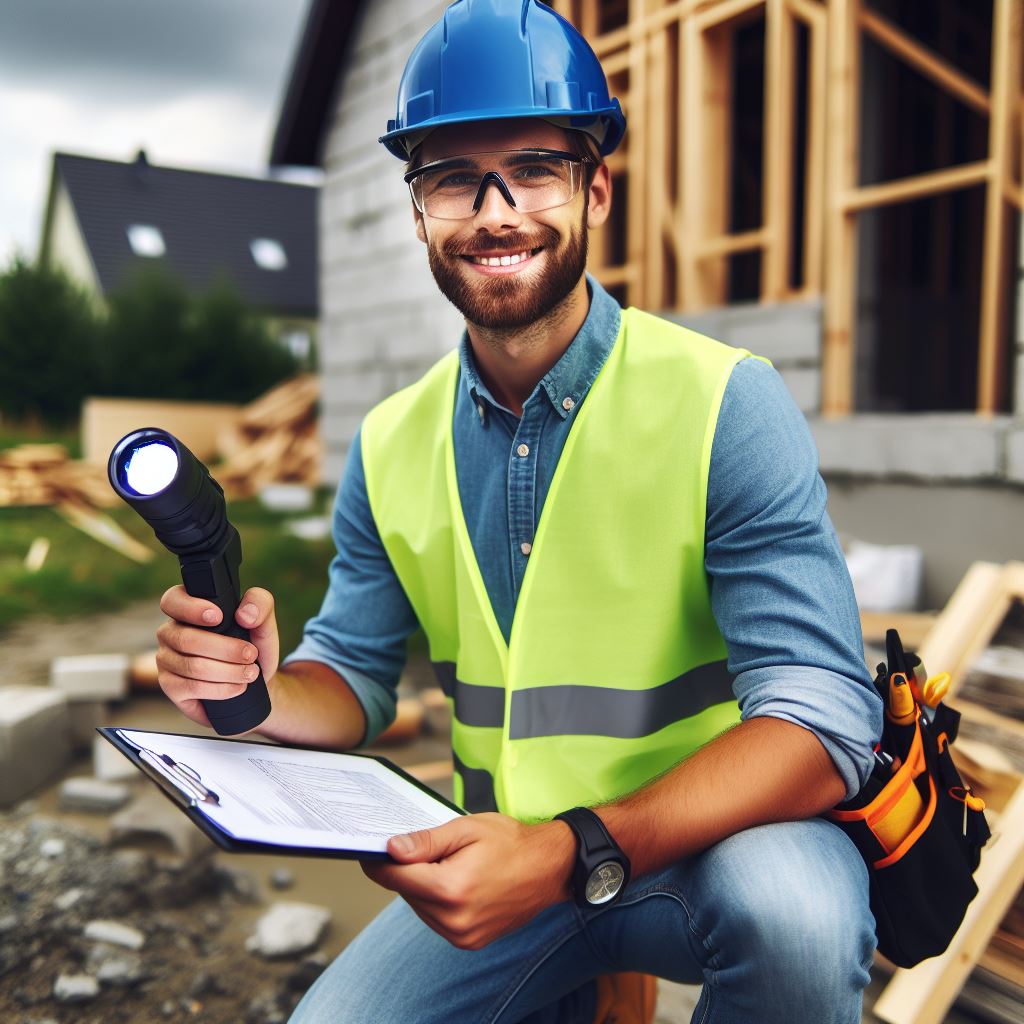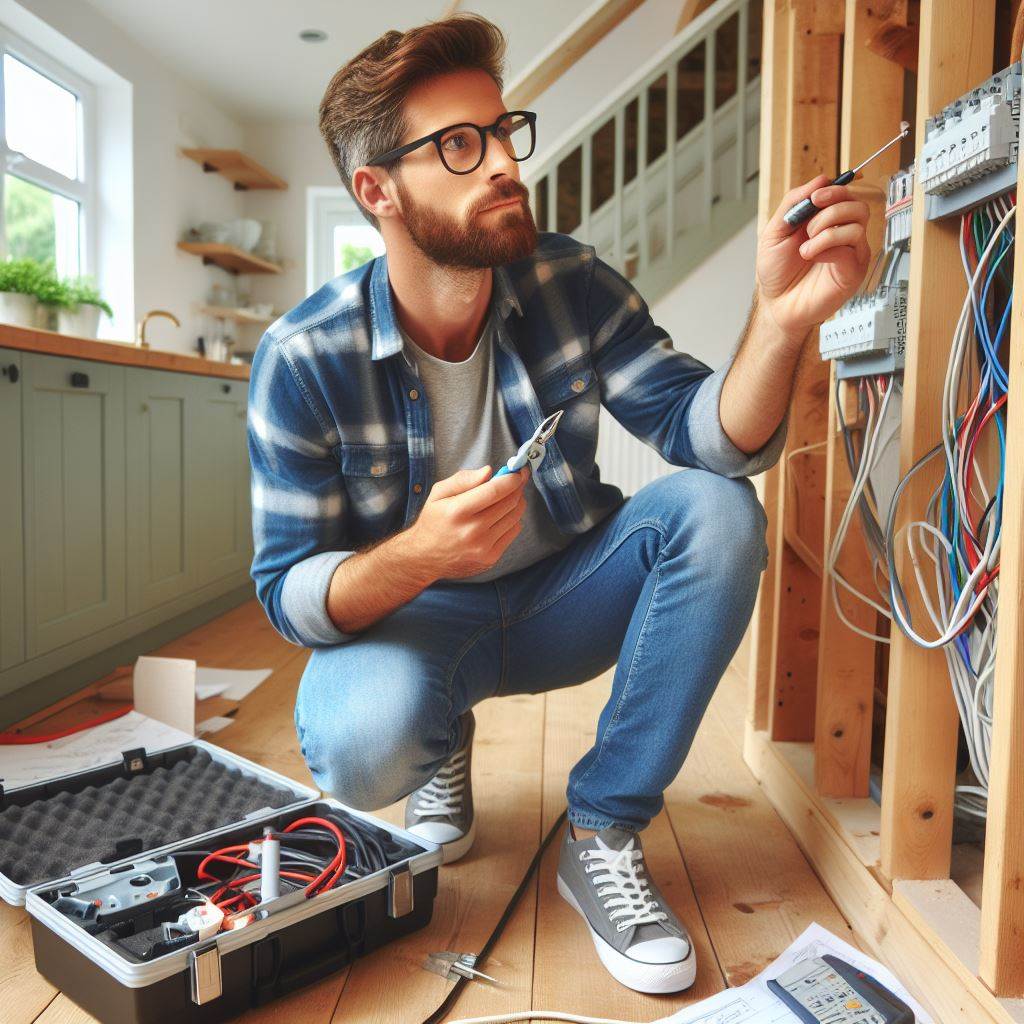Introduction
Home inspection is a crucial step for first-time buyers as it allows them to understand the true condition of the property they are considering purchasing.
During a home inspection, a qualified professional evaluates the structural integrity, systems, and overall condition of a house or apartment.
The purpose of this examination is to identify any existing issues or potential problems that may require attention or repairs.
For first-time buyers, a home inspection is of utmost importance to ensure they are investing in a property that meets their expectations and is worth the asking price.
It provides them with valuable information that can impact their decision-making process, such as negotiating repairs, adjusting the purchase price, or even backing out of the deal if major issues are discovered.
Without a thorough inspection, buyers may be faced with unexpected expenses and headaches in the future.
In this blog post, we will take a closer look at the significance of home inspection for first-time buyers.
We will discuss its benefits, including peace of mind, financial protection, and the opportunity to plan for future maintenance and repairs.
Additionally, we will explore the different aspects of a home inspection, such as evaluating structural elements, plumbing, electrical systems, heating, ventilation, and air conditioning (HVAC), as well as potential environmental hazards like mold or asbestos.
By gaining insight into the process of home inspection and understanding its importance, first-time buyers can confidently navigate the real estate market, protect their investment, and make informed decisions.
Why is a Home Inspection Necessary?
A home inspection is a crucial step when buying a house as it provides valuable insights into the property’s condition, safety, and potential issues.
Identifying Potential Issues and Problems
The primary purpose of a home inspection is to identify any existing or potential issues and problems with the property.
These issues can range from structural problems, electrical or plumbing issues, to issues with the roof or foundation.
Identifying these problems early on can save the first-time buyer from unexpected costs and difficulties down the line.
Determining the Property’s Condition and Safety
Through a home inspection, first-time buyers can get a comprehensive understanding of the property’s overall condition and safety.
Inspection professionals evaluate all accessible areas of the house, including the roof, attic, basement, foundation, plumbing, electrical systems, and more.
This assessment ensures that the property is safe to live in and provides buyers with peace of mind.
Evaluating the Need for Repairs or Renovations
A home inspection report identifies necessary repairs, maintenance, and potential renovations.
First-time buyers can use this information to estimate the additional costs involved in bringing the property up to their desired standards.
It allows them to make informed decisions and factor in these expenses when budgeting for the purchase and future homeownership.
Negotiating on the Purchase Price or Terms
Based on the findings of a home inspection, first-time buyers can negotiate with the seller on the purchase price or terms.
If significant issues are identified, buyers can request the seller to address them before finalizing the deal.
Alternatively, buyers may negotiate a lower purchase price to account for the necessary repairs or renovations.
In essence, a home inspection is a necessary step for first-time buyers.
It helps identify potential problems, assess the property’s condition and safety, evaluate repair needs, and negotiate effectively.
Investing in a professional home inspection provides buyers with confidence and ensures a smooth homeownership journey.
Read: Negotiate Like a Pro: Essential Home Buying Tips
Finding a Qualified Home Inspector
A home inspection is a crucial step in the home buying process as it helps buyers identify any potential issues or problems with the property.
To ensure a thorough and professional inspection, it is essential to find a qualified home inspector. Here are some tips to help you find the right home inspector:
Researching and Asking for Recommendations
Start by conducting thorough research on home inspectors in your area. Look for inspectors who specialize in residential properties and have a good reputation.
Ask friends, family, and real estate agents for recommendations.
Consider checking online review platforms and websites to gather more information about different home inspectors.
Look for inspectors with positive reviews and a track record of providing comprehensive and detailed inspection reports.
Checking Licenses, Certifications, and Experience
Before hiring a home inspector, ensure they have the necessary licenses and certifications to perform inspections in your state or region.
Licensing requirements vary, so make sure the inspector meets all the legal obligations.
Additionally, find out about the inspector’s experience in the field.
Look for someone who has been in the industry for a considerable amount of time and has inspected properties similar to the one you are interested in buying.
Reviewing Sample Inspection Reports
Ask potential home inspectors for sample inspection reports they have previously prepared.
This will give you an idea of their thoroughness, attention to detail, and the level of information you can expect in your own report.
Look for reports that are organized, clear, and easy to understand.
A good inspection report should include detailed descriptions of any issues found, along with photographs or videos to support the findings.
Interviewing Potential Home Inspectors
Once you have narrowed down your choices, it is essential to interview the potential home inspectors.
Prepare a list of questions to ask them to ensure they are the right fit for your needs.
Ask about their inspection process, the time it typically takes to perform an inspection, and what areas of the property they will focus on.
Inquire about any additional services they may offer, such as radon testing or mold inspections.
During the interview, also assess the inspector’s communication skills and professionalism.
A good inspector should be approachable, patient, and willing to answer all your questions in a clear and concise manner.
Remember, a home inspection is an investment in your future home.
Taking the time to find a qualified and reliable home inspector will provide you with peace of mind and ensure that you are making an informed decision.
What to expect during a home inspection
Preparing the property for inspection
- Clean and declutter the property to ensure easy access to all areas.
- Ensure all utilities are on and accessible for the inspector to test.
- Clear vegetation and debris from the exterior, allowing a thorough examination of the property.
Walking through the house with the home inspector
- Accompany the home inspector during the inspection process to gain valuable insights.
- Take notes and ask questions about any concerns or issues that arise during the walkthrough.
- Observe the inspector’s thoroughness and attention to detail while assessing the property.
Learning about the inspection process and areas to be evaluated
- Gain knowledge about the various components of the home that will be inspected.
- Understand the scope of the inspection, including the evaluation of electrical, plumbing, HVAC, and structural systems.
- Learn about potential issues that could arise during the inspection, such as mold, pest infestations, or water damage.
Asking questions and seeking clarification
- Utilize the opportunity to ask the home inspector about any concerns or questions you may have.
- Seek clarification on specific issues or areas of the property that require further explanation.
- Request recommendations for repairs or improvements that may be necessary after the inspection.
During a home inspection, the first-time buyer should be prepared to actively participate in the process.
By following these guidelines, buyers can ensure a smooth inspection that provides them with vital insights about the condition of their potential new home.
Read: Home Inspection Pitfalls and How to Avoid
Common issues found during home inspections
Buying a home is a significant investment, and it’s essential to ensure that you are making a sound decision.
One way to do this is by getting a home inspection. Here are some common issues that are often found during home inspections:
Structural problems
One of the critical things a home inspector looks for is any structural issues.
This can include foundation problems, cracks in the walls, or sagging floors. These issues can be costly to repair and may indicate more significant problems.
Electrical and plumbing issues
Electrical and plumbing systems are essential for any home’s functionality.
During a home inspection, the inspector will check for faulty wiring, outdated electrical panels, plumbing leaks, or inadequate water pressure.
These issues can pose fire and safety hazards if not addressed.
HVAC system functionality
Heating, ventilation, and air conditioning (HVAC) systems are significant components of a home.
Inspectors will examine the HVAC system to ensure it is functioning correctly, including checking for any repairs or maintenance needed to keep it running efficiently.
Roof condition and potential leaks
A well-maintained roof is important in protecting a home from water damage.
Inspectors will examine the roof for any signs of damage, such as missing or damaged shingles, leaks, or improper installation.
Roof repairs can be costly, so it’s essential to identify any issues before buying.
Pest infestation or damage
Pests can cause severe damage to a home and are often challenging to eradicate once they have made their way in.
Inspectors will look for signs of pest infestation, such as droppings, nests, or damage to the structure.
Addressing pest issues promptly is crucial to prevent further damage.
Mold or water damage
Mold and water damage can lead to health issues and structural problems.
Inspectors will check for any signs of water damage, such as stains or discoloration on walls or ceilings.
They will also look for mold growth, which can be a sign of underlying moisture issues.
Safety hazards, such as lead paint or asbestos
Home inspections also include checking for potential safety hazards.
This can include the presence of lead paint in older homes or asbestos in insulation or other building materials.
These hazards can pose health risks and may require professional remediation.
Overall, a home inspection is a crucial step in the home-buying process.
It provides valuable insights into the condition of a property and helps buyers make informed decisions.
By identifying and addressing these common issues, first-time buyers can avoid costly surprises and ensure a safe and sound investment.
Read: The Art of Decoding Real Estate Listings

Evaluating the Home Inspection Report
Understanding the terminology and findings
- Start by familiarizing yourself with the terminology used in the home inspection report.
- Carefully review each finding in the report and try to understand its significance.
- If there are any technical terms you don’t understand, research them or ask the inspector for clarification.
- Make note of any major issues or concerns raised in the report that may require further investigation.
- Understanding the findings will help you make an informed decision about the property’s condition.
Prioritizing identified issues and estimating potential costs
- Once you’ve understood the findings, it’s crucial to prioritize the identified issues.
- Determine which problems are urgent and need immediate attention, and which can be addressed later.
- Consider the potential costs associated with fixing each problem and factor them into your budget.
- Some issues may be minor and inexpensive to fix, while others may require significant investments.
- By estimating potential costs, you can evaluate whether the property is still a viable option for you.
Consulting with professionals for further evaluation if needed
- If you’re uncertain about any findings or want a more comprehensive evaluation, consult with professionals.
- Reach out to licensed contractors, engineers, or specialists to get their expert opinion on the issues.
- They can provide you with valuable insights and advice, helping you make an informed decision.
- Professionals can further assess the severity of problems and give you a clearer picture of potential costs.
- Having additional evaluations can provide peace of mind and confidence in your home purchase.
Considering the impact on the decision to purchase
- The findings of the home inspection report can have a significant impact on your decision to purchase.
- Evaluate if the identified issues align with your expectations and the level of work you’re willing to undertake.
- Consider if the potential costs associated with repairs fit within your budget and future plans.
- Assess the overall condition of the property and weigh it against other options you may have.
- It’s essential to make a well-informed decision that takes into account the inspection report’s findings.
Read: Expert Tips for a Thorough Home Inspection
Navigating post-inspection discussions and negotiations
Inspection results with the seller
- Open a constructive dialogue with the seller about the results of the home inspection.
- Clearly communicate the issues found during the inspection and discuss potential solutions.
- Ask the seller for any additional information or documentation related to the property’s condition.
- Maintain a respectful and professional tone to ensure a productive conversation.
- Consider offering a copy of the inspection report to support your claims.
Negotiating repairs, credits, or price adjustments
- Determine whether repairs, credits, or price adjustments are necessary based on the inspection results.
- Prioritize the most critical issues that need resolution in order to protect your investment.
- Consult with your real estate agent to develop a negotiation strategy that aligns with your objectives.
- Make a reasonable initial request and be prepared for a counteroffer from the seller.
- Stay open to potential compromises, such as sharing repair costs or adjusting the purchase price.
Seeking expert advice when necessary
- If you encounter complex issues during post-inspection discussions, consult a qualified professional.
- Seek guidance from a reputable contractor, engineer, or other relevant experts to assess the severity of the problems.
- Their expertise will help you make informed decisions and negotiate effectively.
- Consider obtaining multiple opinions to ensure a thorough understanding of the situation.
- Expert advice can strengthen your position and provide credibility during negotiations.
Re-evaluating purchase decisions based on negotiation outcomes
- Assess the seller’s response to your requests and weigh the offered solutions against your priorities.
- Consider the feasibility, costs, and impact of the proposed repairs, credits, or price adjustments.
- Take into account the potential long-term consequences of any unresolved issues.
- If the negotiation outcomes significantly impact your satisfaction or financial obligations, reconsider the purchase.
- Remember, it’s important to make decisions that align with your best interests and the condition of the property.
In a nutshell, navigating post-inspection discussions and negotiations is a crucial phase for first-time home buyers.
Open communication, reasonable requests, seeking expert advice, and re-evaluating purchase decisions are essential strategies to ensure a fair and satisfactory outcome.
Remember to maintain a cooperative approach and focus on protecting your investment while also being willing to find mutually beneficial solutions.
Conclusion
When purchasing a home for the first time, a thorough home inspection is crucial. It helps identify potential issues, ensuring a safe and sound investment.
Throughout this blog post, we have emphasized the significance of home inspections in protecting buyers from expensive surprises and providing peace of mind.
If you are a first-time buyer, don’t underestimate the value of a professional home inspection. Take the necessary steps to schedule one today!
Make your home buying process smoother by prioritizing a home inspection.
For more information or answers to any queries, feel free to reach out to our expert team




